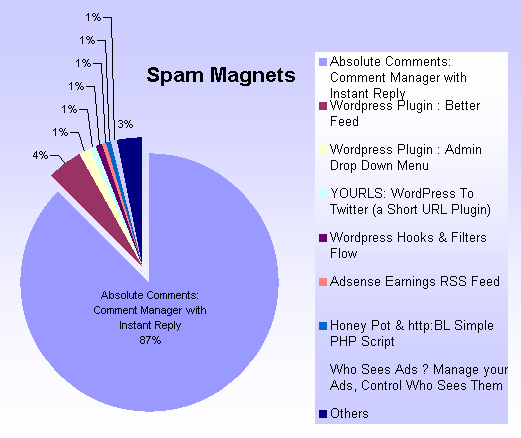So, peeps, I have good news and bad news. And by good news, I mean super mega hyper exciting announcement.
The good news: three persons, carefully handpicked among all the three most important people in WordPress, are writing a book, I mean, THE book, on WordPress Plugin Development. These three fine chaps are Brad Williams, Justin Tadlock and me.
Let me rephrase this in a way that will more reflect my state of mind and how I think about this. OMFG I'm writing a fucking book!!!1!!one!!eleven

Ozh' State of mind (allegory)
The book, entitled "Professional WordPress Plugin Development" (yeah, my suggestion of "Pluginz That Pwn" didn't make it through) should hit shelves in March 2011 and will be published by the cool geek lovers from WROX, in the same collection as Brad's "Professional WordPress".
Not only this is a super author team, but also we'll be lended a hand by a top notch Technical Editor, an incredible guy who is a bit more active than hyperactive kids drinking coffee on steroids, who blogs, commits, speaks, twitts and never sleeps, also known as Andrew Nacin. His role will be to crack the whip and molest us when we write dumbities and acting like we actually know a thing or two about a thing or two (which should happen more than he hopes)
So far the project is running great and what we have written already is, hmm, let me carefully pick an appropriate word, I'd say, like, awesome.
In the next few months be sure to follow @Brad, @Justin and @me for some cool info and exciting news about the book and how we're doing :)
Oh, and the bad news: I have a fracking sprained index finger on my right hand. Which means I can kiss good bye my 60ish WPM, precisely when I have to write pages as if they were raining. Bleh²x100.




 Over the recent months, a site that can make you big money has really found its audience, from a clever promising idea to an active community of users. I've already mentioned it when it started, and I mentioning it again now because it is getting big:
Over the recent months, a site that can make you big money has really found its audience, from a clever promising idea to an active community of users. I've already mentioned it when it started, and I mentioning it again now because it is getting big: 





